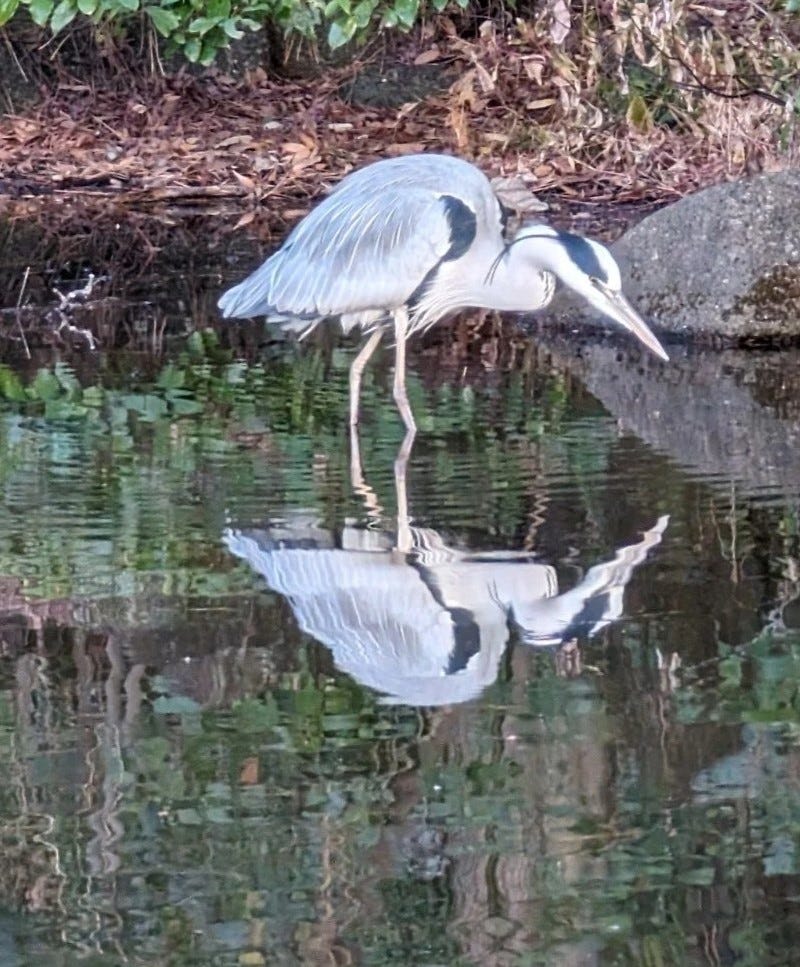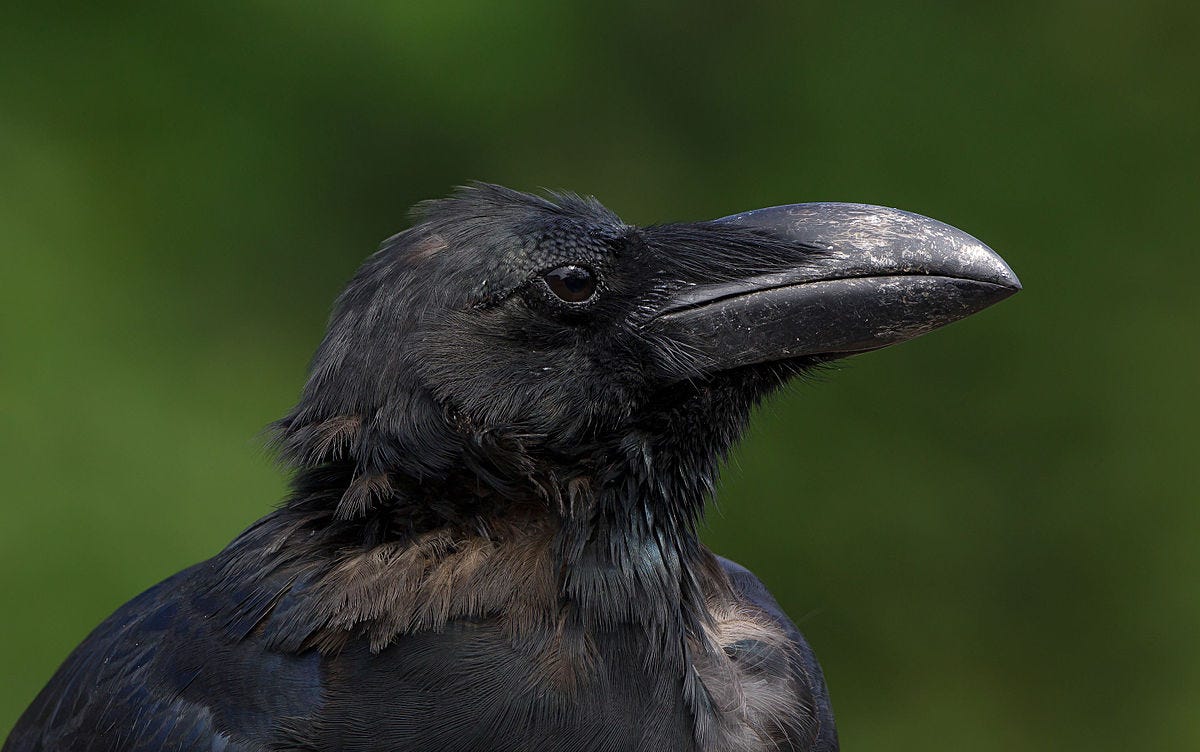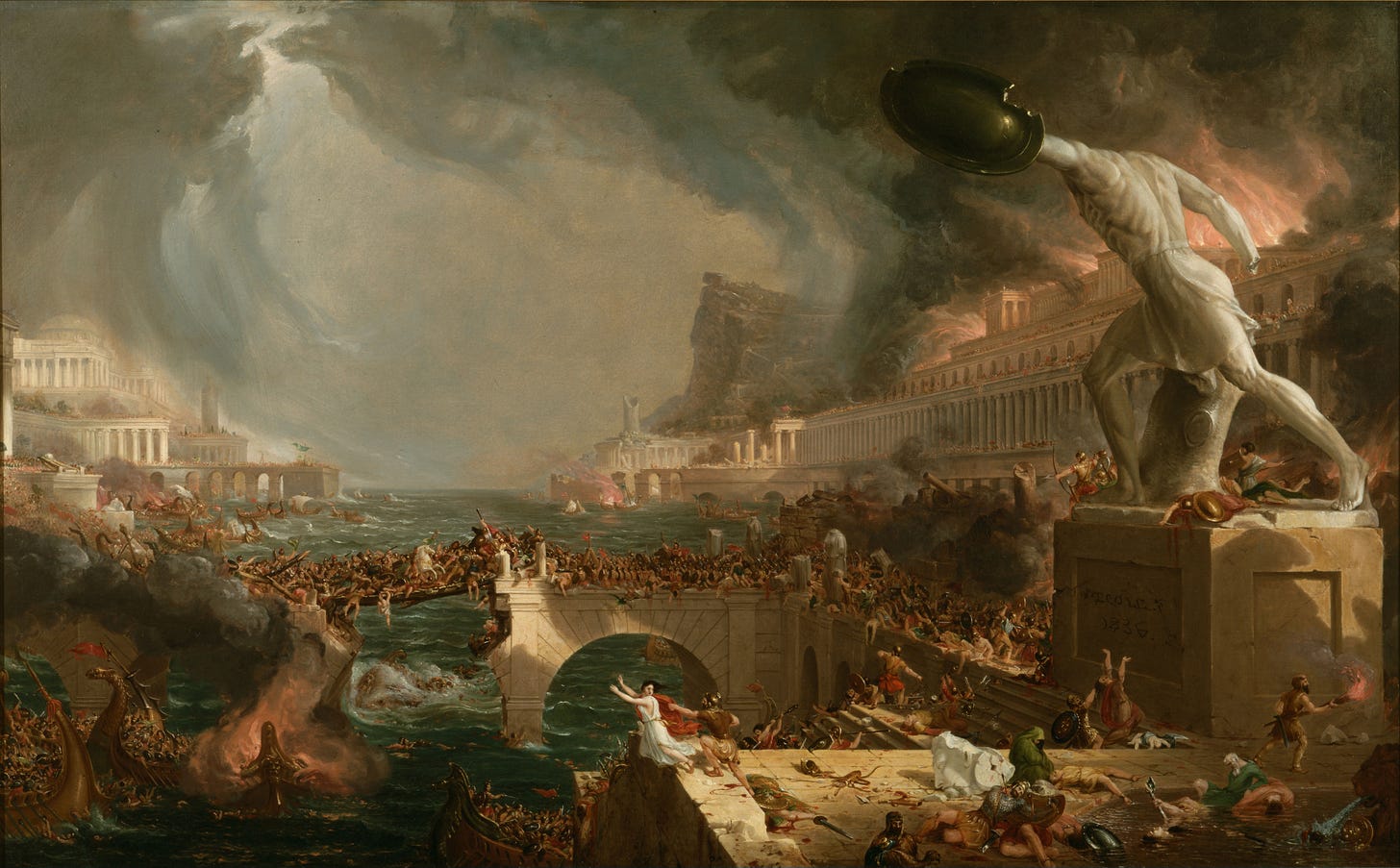I wrote in my last essay that I used to cross the Nile on my walk to work when I lived in Cairo. One of the joys of that walk was to observe the geese gliding over the river's gentle currents. I carelessly took it for granted that they were always the same geese, though each day they seemed to recombine into a differently-sized gaggle. Sometimes I’d see two, sometimes three; on other days, five or six. I began to wonder whether the number had any significance. I recalled an old nursery rhyme from my childhood about magpies: “One for sorrow, two for joy, three for a girl, four for a boy.” So one day, as I crossed the bridge, I found myself asking no one in particular, What did two geese mean—or three? An unexpected visitor? A sudden transfer to another country? The collapse of the world financial system?
I was aware that the Romans had practised augury, the divination of the future through watching bird behaviour. They were not unique in this, but they arguably codified it more than any other culture. There were strict rules related to its practice. I suppose that if you’re an elite set on ruling the known world, you’re as anxious about controlling the future—or at least the making of predictions—as you are about the present or past.
Keen to unlock the secrets of the Nile geese and know more about what was in store for me and the world, I got out my phone and looked for details online. But it turned out that I was wrong to think that counting geese would tell me anything about the next financial crisis or pandemic, or even who’d win the next election. Augury, I hadn’t realised, focused on the behaviour of birds in flight.
I should have left well alone. But maybe it was already too late. As I gazed again into the dark waters of the Nile, I realised the Romans and their birds had somehow colonised part of my mind.
But it had probably all started earlier.
*
Born in Exeter, the site of the Romans’ westernmost settlement in England,1 my first exposure to Roman history or culture was a BBC radio version of Rosemary Sutcliff’s wonderful book set on the northern fringes of the Roman Empire, The Eagle of the Ninth. The eagle was simply a legionary's standard. But, while lacking the words to describe my feelings, I experienced it as a glimpse into the beautiful uncertainties of life, the bittersweet experience of loss, and the dark power of legend and myth. The point in the story about imperial overreach didn’t trouble my child’s mind, but the idea of a “lost” legion and an abandoned eagle standard certainly nested there.
Day to day, though, I was more interested in real birds. As a boy growing up on a farm in Devon in the 1960s, I was lucky enough to see a rich variety of birdlife in the fields, hedgerows, and copses that made up my everyday world on the rough farmland near the edge of Exmoor. I learnt to tell a redwing from a fieldfare, a jay from a jackdaw, and even a goldfinch from the charmingly named firecrest2. With my good eyesight, time to roam, and open countryside to wander in, I prided myself on being a pretty good child birder, with my Wellington boots firmly planted in the clay soils of mid-Devon.
The mythic side of watching birds was tenuously present, however. On my first visit to London, I saw the famous ravens at the Tower. I was disconcerted to find that, according to legend, the kingdom and the Tower would fall if those six resident ravens ever left the fortress.
And, more prosaically, I knew that the sight of swallows flying low was a probable sign of imminent rain (no small matter on the farm during the hay-making season).
*
These days, as I delight in watching the behaviour of birds, I try not to think about them as diviners of the future. In my part of Tokyo, I get joy from watching Japanese white-eyes trilling to each other as they plunder the plum blossom for nectar. I love watching the cormorants perched on a tall tree overlooking my local fish pond, hungrily eyeing their breakfast buffet below. I revel in the contrast between the motionless heron I see in the neighbourhood park and the constant nervous, noisy clamour of the ubiquitous brown-eared bulbuls.
*
And then there are the crows.
As far as I’m aware, augury wasn’t practised here in Japan in the way that it was in ancient Rome. But a crow did play a key role in the founding myth of the country. Legend has it that the three-legged crow, Yatagarasu3, was called upon by the sun-goddess Amaterasu to guide her grandson Jinmu Tennō when he got lost in the woods of Wakayama, in Western Japan, on his way to founding the country and becoming its inaugural emperor in the 7th century BCE.
Although I haven't yet seen a three-legged crow in Tokyo, the sheer size of the large-billed crows,4 which seem to dwarf the crows I used to see in Devon, is remarkable enough. The largest of them are about the size of those ravens at the Tower. And if you come across one suddenly as you turn a corner in the city, the bird’s large beak and raucous call, added to its self-confident demeanour of an apex predator, can cause quite a shock.
The crows in my immediate neighbourhood don’t scare me, but one of their number has recently become a source of unease, making itself heard above the everyday din of the city. Other crows vary in their calls, but this one seems to revel in endlessly repeating two sounds that mimic a word in Japanese. “Baka! Baka!” it seems to cry. “Stupid! Stupid!”
With some effort, I manage not to take it personally. It’s just an example of a bird being a bird, I tell myself. But it’s harder for me to resist slipping back into my old misunderstanding of the Romans, harder to resist wondering what it is the birds are trying to tell us.
The names of birds were almost like incantations to me as a child, and I was fascinated recently to read in
’s wonderful essay Why magic matters this exhortation: “Stop remarking on plants, birds and trees. Start learning their names.”The name means “large crow.”
They apparently used to be referred to as “jungle crows.”












You write beautifully Jeff and in such a way that I am transported to the contexts you describe. I join you in not being able to resist reading into the presence of particular birds. For me, in Cumbria it is the robin.
It's fascinating that you write about birding and choose to set some of the context within divinity and divination.
I'm always intrigued when I read stuff like this on substack.
Spirituality is commonplace where I live. But I think of 'the west' as form and matter; buildings, commerce, politics and intellect.
This morning I read a note by Natalie McGill an author on substack where she was responding to something written by Stewart K Lundy.
They are talking about seeds, nature and her cycles, and reincarnation.
You write about birds and their connection, in long gone societies, to divinity and divination.
Someone else that I encountered on Substack this morning publishes weekly ‘nature-based spiritual writings’.
I wonder; is it a thing currently? Is 'the west' curious about spirituality?
*Sorry to use ‘the west’. I simply can’t think how else to describe the places I’m referring to.